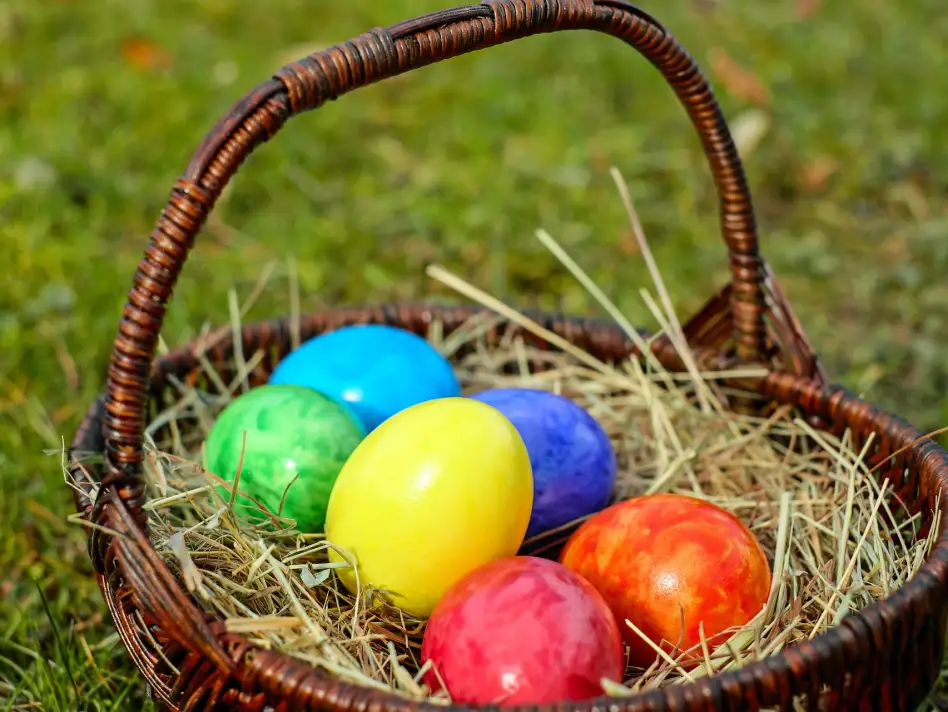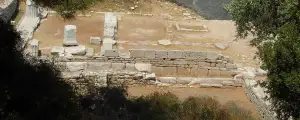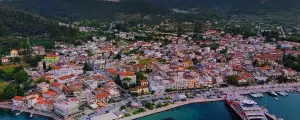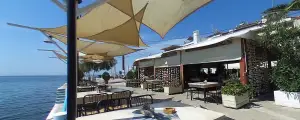Easter on Thassos Island is a vivid celebration of tradition, spirituality, and culinary delights. This unique time offers an opportunity to delve into the rich Orthodox Christian customs that define this enchanting Greek island. As Easter approaches, the island comes alive with vibrant activities and spiritual gatherings that attract visitors from around the world.
Tradition and faith on Thassos
Thassos Island is steeped in Orthodox Christian heritage, highlighted by its numerous small churches and monasteries. These religious establishments are not just places of worship but also serve as historical landmarks, each telling a story of devotion and faith. Monks from Mount Athos visit the island, sharing customs that further enrich local religious practices. This deep-rooted faith fosters a strong sense of community and spirituality among the locals, creating a welcoming atmosphere for visitors eager to learn about the island's religious traditions.
Holy Week in Thassos: A time of reflection
Known locally as “Megali Evdomada,” the Holy Week engulfs Thassos Island in an air of profound spiritual contemplation. Each day of the week carries its own significance, with ceremonies and rituals that set the stage for Easter Sunday. Traditional activities like baking Easter cookies and "tsoureki," a sweet bread, begin early in the week. These culinary customs are as much about community as they are about preparation, bringing families together in shared anticipation of the celebrations to come.
On Holy Thursday, islanders dye red eggs, a symbol of Christ’s blood and the rebirth of life. This practice is coupled with hanging red clothes as a visual representation of mourning. The evening is dedicated to somber church ceremonies, including the decoration of the Epitaph with fresh spring flowers, initiating a period of introspection and remembrance.
The solemnity of Good Friday
Good Friday is the most sacred day of Holy Week on Thassos. The island is enveloped in an atmosphere of reverence, with mournful bells echoing through the churches. Fasting is observed as a form of spiritual discipline, and the faithful gather to participate in moving rituals. A poignant funeral service is held, and the Epitaph, a symbol of Christ’s entombment, is carried in a candlelit procession through the streets. This powerful tradition unites the community in shared mourning, deepening the spiritual bonds amongst participants.
The joy of Holy Saturday
Holy Saturday marks the peak of anticipation as the island prepares for the midnight proclamation of “Christos Anesti” (Christ is risen). Families eagerly gather in churches, candles in hand, ready to receive the Holy Flame—a symbol of Christ’s resurrection. The night sky is illuminated by fireworks, and the joyous greeting of “Christos Anesti” and “Alithos Anesti” (truly, He is risen) echoes throughout the island.
The Holy Flame is taken home, where it is used to bless the household. Families create a cross above their doors, signifying the light of the Resurrection blessing their home. This tradition culminates in a midnight feast, where loved ones gather to enjoy "margarita" soup and crack red eggs—a practice symbolizing the opening of Christ’s tomb. The warmth of family connections and the spirit of celebration create a memorable and uplifting experience.
Thassos Easter Sunday celebrations
Easter Sunday dawns with renewed joy and festivity. The island awakens to a day of feasting and family gatherings, with Thassos Island residents and visitors alike attending church services to light candles and offer prayers. This day is all about togetherness, with communal meals featuring traditional dishes like roasted lamb and a variety of delectable Greek specialties.
The culinary delights of Easter on Thassos
Easter culinary traditions on Thassos are a feast for the senses. From the sweet aroma of "tsoureki" to the savory flavors of traditional Easter lamb, the island’s cuisine plays a central role in the celebrations. The sharing of meals is more than just a tradition; it is an expression of unity and gratitude, bringing everyone together in a spirit of hospitality and joy.
Visitors to the island during Easter can indulge in these local dishes, gaining insight into the cultural significance of each meal. Whether sampling homemade Easter cookies or enjoying a family-hosted dinner, the culinary experience is sure to leave a lasting impression.
Welcoming Easter travelers from Bulgaria and Romania - similarities
Thassos Island, with its charming Easter traditions, draws many visitors from Bulgaria and Romania, countries that share Orthodox roots. These travelers not only come to soak in the island’s beauty and religious festivities but also bring their own customs, enriching the celebrations on Thassos!
Easter in Bulgaria
In Bulgaria, Easter is marked by a blend of religious and folkloric practices. The tradition of dyeing eggs red is shared with Greece, symbolizing the blood of Christ. However, Bulgarians host a unique tradition known as "egg tapping," where participants hit each other's eggs to see which one survives uncracked. This game adds a playful element to the otherwise solemn occasion.
Bulgarians attend midnight services and participate in the processional carrying of the icon, similar to the Greek Epitaph procession. Their Easter bread, called "kozunak," is a sweet, rich bread often made with raisins and nuts, offering a different flavor profile from the Greek "tsoureki."
The Bulgarian celebration extends to large family feasts on Easter Sunday, featuring lamb, salads, and a variety of traditional pastries, emphasizing the importance of togetherness and
Easter in Romania
Romanian Easter traditions are rich in symbolism and vary greatly across regions. The celebration begins with the blessing of food baskets on Holy Saturday, which are then shared among families. Romanian eggs are often intricately decorated with detailed patterns, each color and design holding cultural significance.
Midnight services in Romania mirror those in Greece, with the Holy Light spreading amongst the congregation as a symbol of the Resurrection. The customary greeting of "Hristos a înviat" (Christ has risen) is exchanged with "Adevărat a înviat" (Indeed, He has risen).
Romanian Easter meals feature roast lamb, "drob" (a traditional lamb dish), and "pasca," a sweet cheese-filled bread. These foods carry deep-rooted cultural meanings, uniting families in celebration and reflection.
A cultural exchange with the local community in Thassos
The influx of Bulgarian and Romanian visitors during Easter creates a unique cultural exchange. Many Bulgarians partake in their tradition of "egg tapping" while on the island, engaging with locals in this playful ritual. Similarly, Romanian travelers often share their beautifully decorated Easter eggs, full of intricate designs, with Greek hosts. This exchange of customs enhances the community spirit, offering both visitors and locals a chance to explore diverse cultural expressions.
The presence of these international visitors adds an enriching layer to the Easter celebrations on Thassos. Greek residents, known for their warm hospitality, embrace the cultural differences and similarities, fostering connections through shared meals, stories, and traditions. This cultural integration is warmly anticipated by the islanders, who welcome the opportunity to share their Easter festivities with a broader audience.
Thassos island’s warm hospitality, combined with its deep spiritual heritage and the enriching presence of international visitors, creates an experience that is both unique and universal. As you explore the customs, events, and delicious cuisine, you’ll discover the unique charm of Easter on Thassos Island—a celebration that beautifully intertwines faith, culture, and community across borders. Embrace this special time and immerse yourself in the vibrant tapestry of Easter festivities.








